Students were busy planting Chinese medical herbs in a nursery garden at Tongji University. They learned first to loosen the soil with a small shovel, dig a small pit, then plant a Chinese mugwort seedling, and finally cover it with soil. In a small nursery on the South Campus of Tongji University, more than 100 international students from 55 countries planted Chinese herbs, e.g. Chinese mugwort and Eucommia ulmoides. They were excited at feeling the wonders of Chinese medicine culture with their own hands.
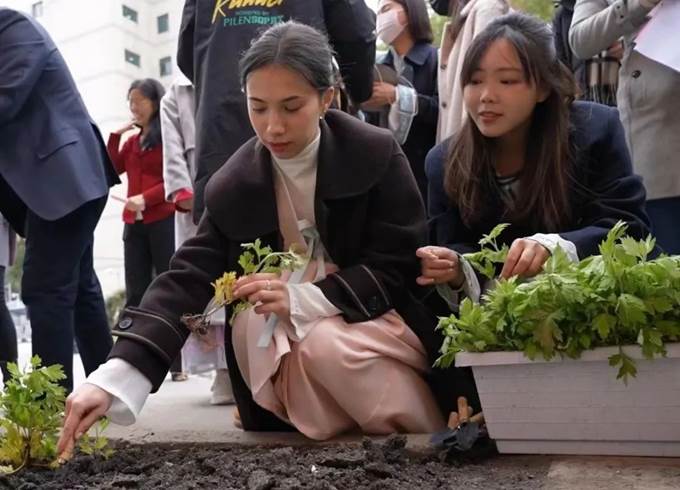
International students planting Chinese mugwort
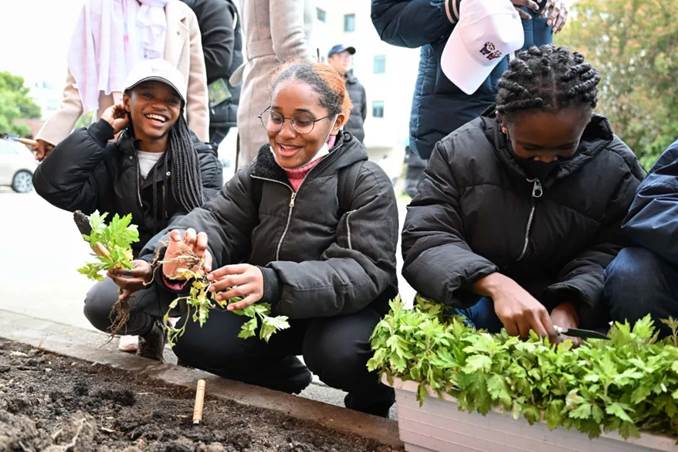
International students planting Chinese mugwort
On the afternoon of March 24th, Tongji University's "Chinese Medicine Experience Park for International Students" was unveiled and launched on the South Campus of Tongji University. This is a featured part of the "Experience Zone of Chinese Ecological Civilization for International Students" of Tongji University. Vice President LOU Yongqi attended the unveiling ceremony and delivered a speech.
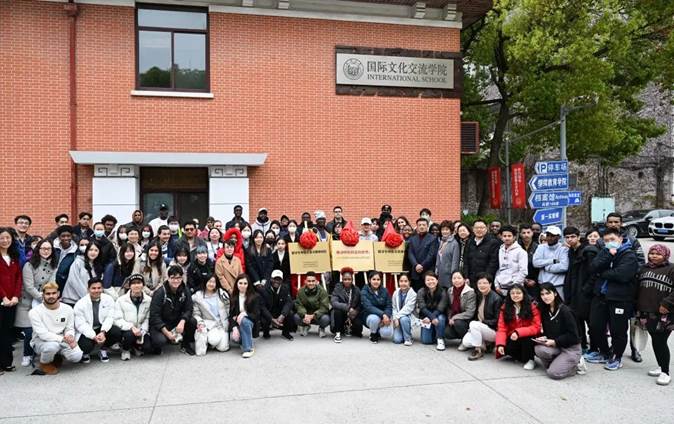
A picture together to mark the happy afternoon
"Chinese mugwort should be planted one by one. They cannot be put together in one pit." "Don't step on the soil around Eucommia ulmoides too hard; otherwise the water won't sink properly." "The roots and leaves of Chinese herbs, even some barks can be used as medicine." In the planting process, Chinese medical herbs planters gave on-site guidance to help the international students understand Chinese herbal medicines as well as planting skills.
In less than half an hour, an empty nursery became full of vitality. A batch of Chinese herbal seedlings began to take root. International students adopted different herbs by marking the seedlings with names in their mother tongue languages on the nameplate and writing down their expectations for the herbs. Students said that they will not only take good care of these herbs during their studies at Tongji, but also come back to see them after their graduation from the university.
"When I was 15 years old, I heard about TU Youyou, a Chinese Nobel prize winner for her discovery of artemisinin. Artemisinin has saved countless malaria patients in the world. I have long been yearning for Chinese medicine, and I am determined to become a doctor in the future to heal the wounded and rescue the dying". QIAO Muxin, an international student from Uganda, said that he could feel his mission when he planted the herbs with his own hands today.
A medical team from Shanghai Hospital of Traditional Chinese Medicine spent the afternoon with the international students at the invitation. They demonstrated common Chinese medicine therapies such as moxibustion, burying beans at auricular points, acupoint application, fragrant pea therapy, Chinese herbal tea, and foot bath soaking powder to the students.
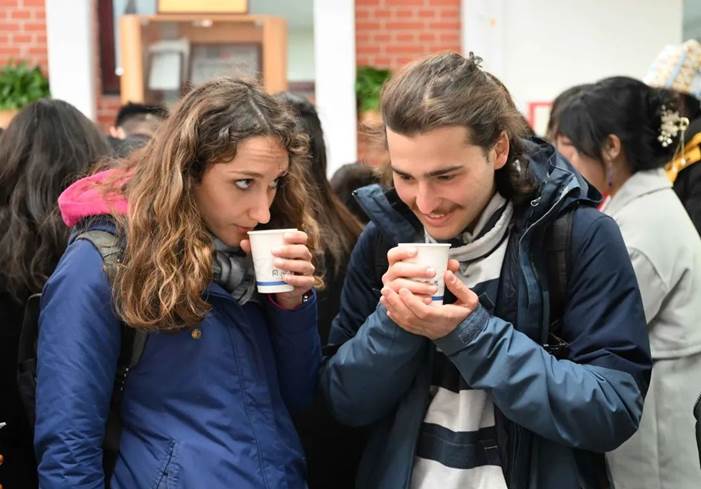
What’s the smell?
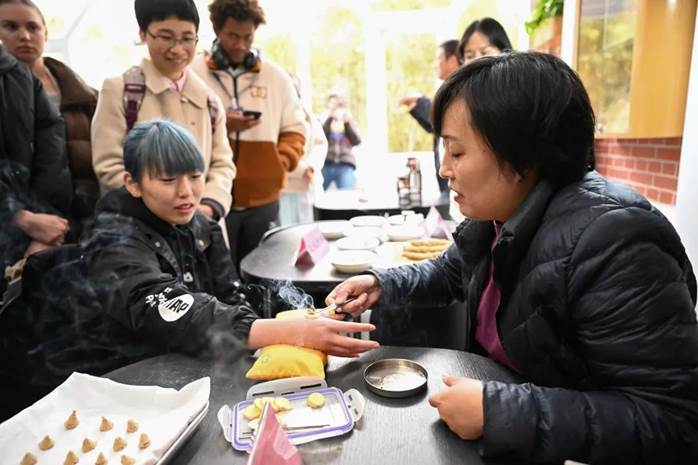
An international student experiencing moxibustion
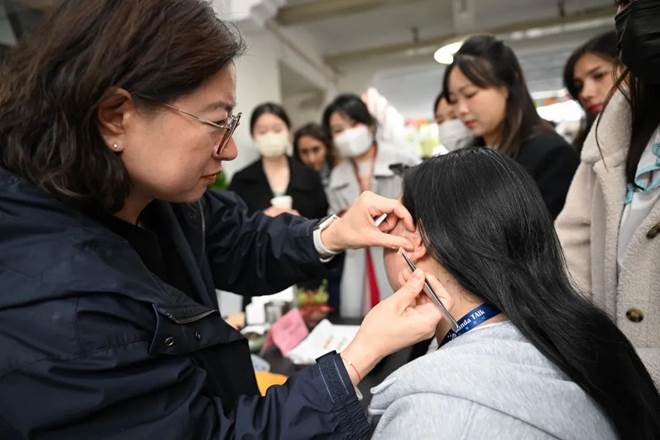
An international student experiencing burying beans at ear points
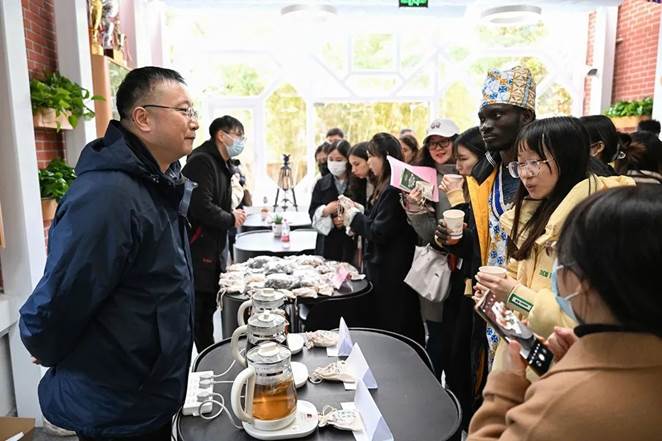
International students trying the special Chinese herbal tea
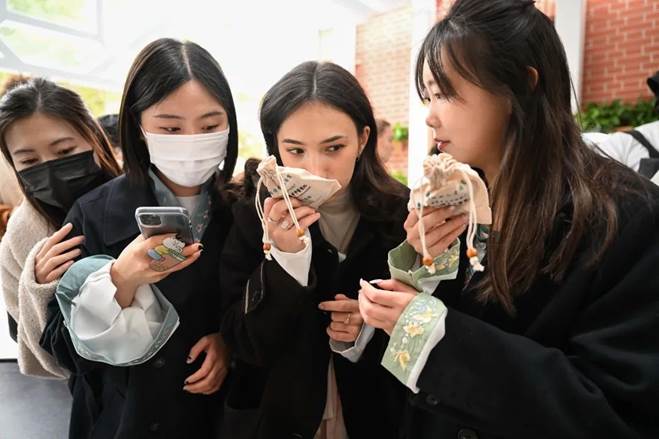
International students curious about Xiangpei therapy
ZHANG Li, an undergraduate student from Romania, experiencing moxibustion with curiosity Place garlic slices in Hegu acupoint on your hand, spread moxa velvet, and feel the heat generated by burning moxa velvet. "It feels hot, and my soreness at the acupoints has been reduced a lot. It is really effective and I want to recommend it to my family and friends," she said.
KE Dasha, a Master's student from Russia, wore the traditional Chinese robe Hanfu to mark her day. She has been interested in Chinese medicine for long. She not only planted Chinese mugwort seedlings, but also tasted the lung-nutritious soup and put on cough-relieving application. She said: "The activity is very interesting. I had a cold recently. I feel very comfortable after drinking lung- nutritious soup. Now, I want to know more about Chinese medicine culture."
According to Vice President LOU Yongqi, Chinese medicine is a treasure of the nation, and we are proud to promote Chinese medicine culture to the world. International students are an important bridge to tell Chinese stories to the world. I believe this special experience of Chinese medicine culture will sow seeds in the hearts of the students and spread Chinese culture all over the world.
In recent years, Tongji University has been committed to exploring interesting ways for international students to share Chinese stories with the rest of the world. Through a series of activities like "Panda Talk - International Students Telling Chinese Stories", "Tongji University International Students on the Way to See China", "International Students' Ecological Civilization Experience Zone in China" and labor education courses, the international students see the real China by experiencing the charm of Chinese culture.